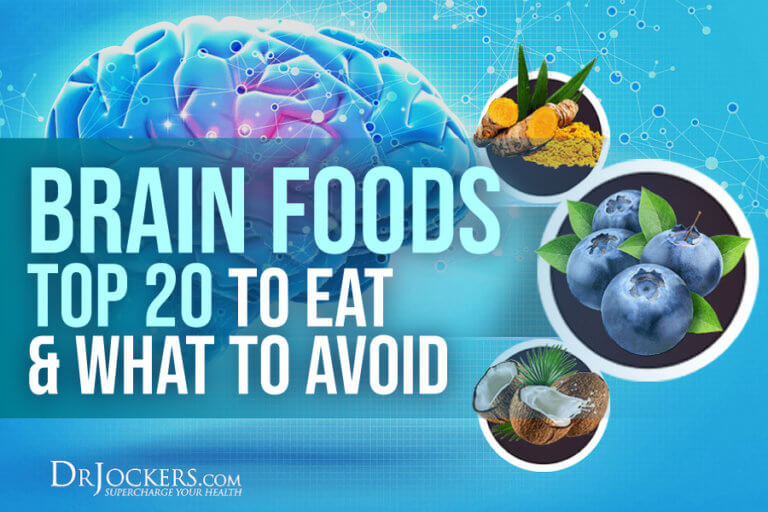Don’t miss this What Are The 5 Brain Killer Foods article containing the interesting information you’re looking for, all carefully summarized by us.

5 Brain-Damaging Foods to Avoid for Optimal Cognitive Health
Our brains, the central command centers of our being, deserve the utmost care and nourishment. Yet, in our modern world of processed foods and questionable nutritional choices, we often inadvertently consume foods that undermine our cognitive functions. This article delves into the detrimental effects certain foods have on our precious brains, empowering you with knowledge to make informed dietary choices for optimal brain health.
Ignorance is not bliss when it comes to brain health. Understanding the impact of what we eat on our cognitive abilities is crucial for preserving our mental sharpness. Let’s embark on a journey of discovery, unveiling the five brain killer foods and exploring their insidious effects.
Sugar: The Sweet Enemy of Cognitive Function
Sugar, ubiquitous in our processed food landscape, poses a significant threat to our brain health. Consuming excessive amounts of sugar triggers inflammation in the brain, impairing cognitive functions such as memory, learning, and decision-making. Studies have shown that a high-sugar diet can lead to reduced brain volume and impaired synaptic plasticity, the brain’s ability to learn and adapt.
Trans Fats: The Silent Saboteur of Brain Health
Trans fats, often found in processed foods and deep-fried items, are another culprit in the decline of cognitive health. These unhealthy fats raise LDL (bad) cholesterol levels while lowering HDL (good) cholesterol levels, leading to reduced blood flow to the brain. This diminished blood flow hinders the brain’s ability to receive essential nutrients and oxygen, impairing cognitive function.
Processed Meats: A Delicatessen Delight with Hidden Risks
Processed meats, such as bacon, sausage, and hot dogs, contain high levels of saturated fats, preservatives, and sodium. These components can contribute to inflammation throughout the body, including the brain. Chronic inflammation has been linked to an increased risk of cognitive decline and neurodegenerative diseases such as Alzheimer’s.
Refined Carbohydrates: The Sugar Spike that Hurts Brainpower
Refined carbohydrates, commonly found in white bread, pasta, and sugary cereals, are rapidly broken down into glucose, causing a spike in blood sugar levels. This sudden influx of glucose can lead to insulin resistance, a condition that impairs the brain’s ability to utilize glucose for energy. As a result, cognitive function suffers, and the risk of developing type 2 diabetes and even Alzheimer’s disease increases.
Alcohol: The Intoxicating Elixir with Cognitive Consequences
While moderate alcohol consumption may have some health benefits, excessive alcohol intake has detrimental effects on brain health. Alcohol disrupts the brain’s neurotransmitter systems, impairing cognitive functions such as memory, learning, and coordination. Chronic alcohol abuse can lead to structural changes in the brain, including shrinkage and reduced brain volume.
Tips for Nourishing Your Brain for Optimal Performance
In addition to avoiding the brain-damaging foods mentioned above, it’s crucial to incorporate brain-boosting foods into your diet. These foods provide essential nutrients that support cognitive health and protect against age-related cognitive decline.
Some brain-boosting foods to consider include:
- Fatty fish (e.g., salmon, tuna, mackerel): Rich in omega-3 fatty acids, which are essential for brain cell health.
- Berries (e.g., blueberries, strawberries, raspberries): Contain antioxidants that protect brain cells from oxidative damage.
- Leafy green vegetables (e.g., spinach, kale, broccoli): Provide folate, which is essential for brain development and function.
- Nuts and seeds (e.g., almonds, walnuts, chia seeds): Rich in healthy fats, fiber, and antioxidants that support brain health.
- Whole grains (e.g., brown rice, quinoa, oats): Provide sustained energy for the brain and are a good source of fiber, vitamins, and minerals.
Frequently Asked Questions About Brain-Damaging Foods
- Q: Are all processed foods bad for my brain?
- A: Not all processed foods are harmful. Some processed foods, such as canned fruits and vegetables, can be a healthy and convenient option. However, it’s important to limit consumption of processed foods that are high in sugar, trans fats, and sodium.
- Q: Can I eat any amount of sugar without harming my brain?
- A: While moderate amounts of sugar are unlikely to cause significant harm, excessive sugar consumption can negatively impact brain health. The American Heart Association recommends limiting added sugar intake to 25 grams per day for women and 36 grams per day for men.
- Q: Is it possible to reverse the effects of brain-damaging foods?
- A: While the effects of brain-damaging foods cannot be completely reversed, adopting a healthy diet and lifestyle can help improve cognitive function and protect the brain from further damage.
Conclusion
Our brains are delicate and complex organs that require proper nourishment to function optimally. By avoiding brain-damaging foods and incorporating brain-boosting foods into our diets, we can support cognitive health, preserve our mental sharpness, and reduce the risk of developing neurodegenerative diseases. Remember, knowledge is power, and understanding the impact of what we eat on our brains is the foundation for making informed choices that will benefit our cognitive well-being for years to come.
We encourage you to continue exploring the fascinating topic of brain health and seek further information from reputable sources. Your brain is a precious asset, and it deserves the best care you can give it.

Image: blog.bartonpublishing.com
Thank you for reading What Are The 5 Brain Killer Foods on our site. We hope you find this article beneficial.

 Hogki.com Trusted Information and Education News Media
Hogki.com Trusted Information and Education News Media